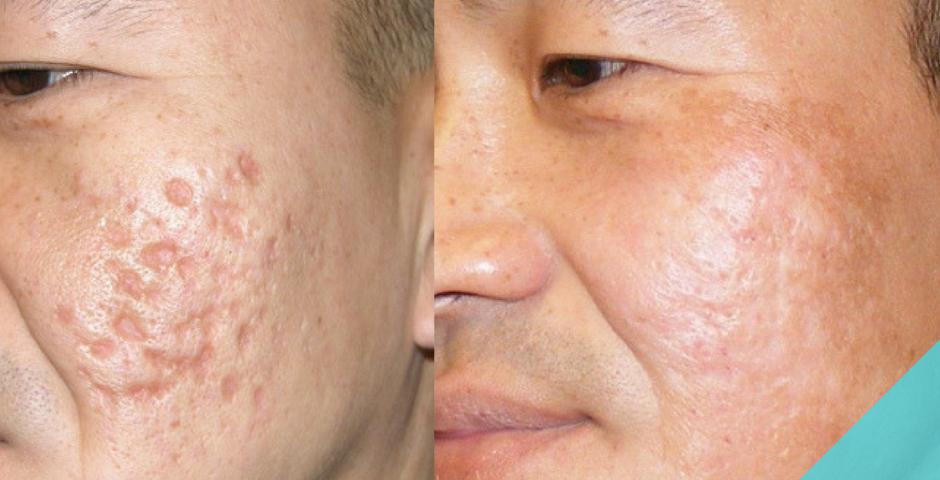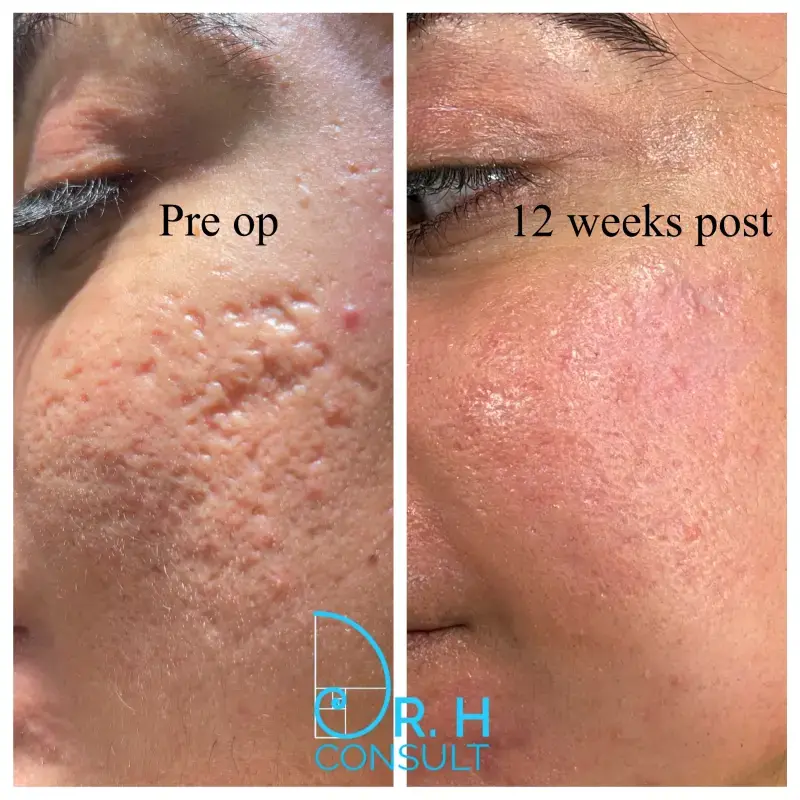Targeted Acne and Acne Scars Treatment: Recover Your Clear Skin
Targeted Acne and Acne Scars Treatment: Recover Your Clear Skin
Blog Article
Comprehending the Various Skin Problem and Reliable Treatment Alternatives for Acne Marks
Acne scars stand for a complicated interplay of skin problems that substantially impact people' self-confidence and overall skin wellness. As we check out the landscape of acne scar administration, it ends up being noticeable that the journey toward clearer skin might include even more than just topical solutions.
Kinds of Acne Scars
Acne marks can show up in various types, each requiring details treatment strategies. The two key classifications of acne marks are hypertrophic and atrophic scars. Atrophic marks are characterized by a loss of cells, resulting in depressed locations on the skin. These scars are additional identified into 3 subtypes: ice pick scars, which are deep and narrow; boxcar scars, which are broader and have well-defined edges; and rolling marks, which develop a wave-like appearance due to irregular skin texture.
On the other hand, hypertrophic scars arise from an overproduction of collagen throughout the healing procedure, leading to elevated locations on the skin. These scars are usually solid and can differ in shade, often appearing red or darker than the surrounding skin.

Root Causes Of Acne Scarring
Marking happens as a result of the body's natural recovery response to inflammation and injury brought on by acne sores. When acne types, it sets off an inflammatory response, bring about the launch of various cytokines and development aspects that promote recovery. Nevertheless, this process can often bring about extreme tissue development or insufficient repair, causing scars.
The main reasons for acne scarring include the severity of the acne itself, period of the sores, and specific skin types. Extreme inflammatory acne, such as nodules and cysts, is most likely to result in scarring as a result of deeper cells damages. Furthermore, inappropriate handling of acne lesions, such as squeezing or selecting, can intensify cells injury and inflammation, enhancing the chance of scarring.
Genetic proneness also plays a significant duty; individuals with a household background of scarring are at a higher danger. Skin type and color can affect mark development, as darker skin tones may experience post-inflammatory hyperpigmentation, while lighter skin may establish atrophic marks.

Treatment Alternatives for Scarring
Effective therapy alternatives for acne scarring differ relying on the kind and extent of the marks. Usually classified right into atrophic, hypertrophic, and keloid marks, these conditions need tailored approaches for optimal outcomes.
For atrophic marks, which are identified by a loss of cells, treatments such as chemical peels, microdermabrasion, and laser therapy are commonly employed. These approaches advertise skin revival and promote collagen production, thus boosting skin appearance. Subcision, a minimally invasive procedure, can additionally be effective by damaging up fibrous bands beneath the skin.
Hypertrophic and keloid scars can be extra testing to treat. Options include corticosteroid shots to decrease inflammation and flatten the explanation scars. acne treatment for sensitive skin. In some situations, cryotherapy or laser treatment may be advised to decrease their appearance
Surgical choices are readily available for serious scarring, where excision or skin grafting may be essential. It's vital for individuals to seek advice from with a skin doctor to assess their certain mark kind and discuss the most appropriate therapy strategy. Integrating numerous treatments commonly yields the best results, making certain that each person's one-of-a-kind skin problem is resolved effectively.
Natural Remedy and All-natural Solutions
Natural solutions and natural remedy can provide an accessible technique for individuals looking for to improve the look of acne scars. Numerous ingredients located in the home cooking area have demonstrated prospective advantages in enhancing skin texture and promoting healing.
Using fresh aloe vera gel straight onto the marks can help improve skin hydration and decrease inflammation. Honey has all-natural anti-bacterial and moisturizing top qualities that can assist in mark recovery.
An additional effective option is lemon juice, which serves as a natural exfoliant and can lighten hyperpigmentation. Nevertheless, it must be utilized meticulously, as it might trigger photosensitivity. Oatmeal masks are also advantageous; their gentle exfoliation can aid get rid of dead skin cells while comforting inflammation.
Crucial oils, such as tea tree oil and lavender oil, can better sustain mark healing due to their antimicrobial residential properties. It is vital to do a patch test prior to using any type of treatment to guarantee there are no unfavorable reactions. These all-natural options can be a complementary strategy in the journey to lessen acne scars.
Protecting Against Future Scarring
Embracing an aggressive approach to skin care can considerably reduce the danger of creating future acne scars. One of the vital strategies is to handle acne properly as it occurs (acne treatment for sensitive skin). This involves making use of non-comedogenic skincare products and medications recommended by skin doctors that target acne without irritating the skin. Routine cleansing, peeling, and hydration can help preserve skin health and stop blocked pores.
Furthermore, avoiding the temptation to squeeze or choose acne lesions is essential, as this can result in swelling and subsequent scarring. Instead, people need to focus on applying topical treatments that promote healing and lower swelling. Components such as salicylic acid, benzoyl peroxide, and retinoids are recognized for their effectiveness in taking care of acne and minimizing scars.

Finally, keeping a healthy diet plan abundant in anti-oxidants and remaining hydrated assistances skin regeneration. By applying these preventive procedures, people can significantly reduce their danger of future scarring and advertise total skin health.
Conclusion
In conclusion, a comprehensive understanding of acne marks, incorporating both hypertrophic and atrophic types, is important for published here effective therapy approaches. Appointment with a skin doctor stays vital to develop personalized strategies that think about individual skin kinds and scar severity, inevitably check out here improving the efficacy of mark management strategies.
Acne scars stand for a complex interaction of skin problems that significantly influence individuals' self-worth and general skin health. The 2 primary groups of acne scars are hypertrophic and atrophic scars. These scars are further classified into three subtypes: ice pick scars, which are deep and narrow; boxcar scars, which are bigger and have well-defined sides; and rolling scars, which produce a wave-like look due to uneven skin structure.
An extensive consultation with a skin specialist can help figure out the most appropriate intervention, taking right into account the individual's skin type, mark severity, and general skin wellness.
Assessment with a skin doctor remains critical to develop tailored approaches that think about specific skin types and scar intensity, inevitably enhancing the efficacy of scar monitoring strategies.
Report this page